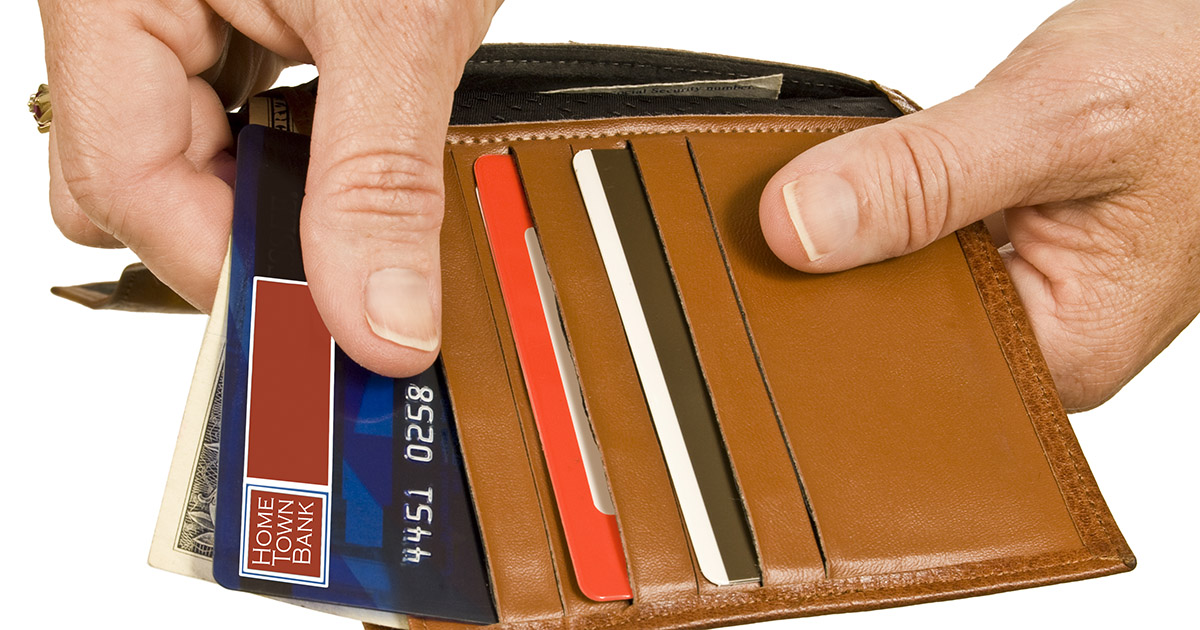Credit Cards vs Debit Cards Compared - Risk and Rewards
- January 10, 2019
- by Emily

Even though they look the same, credit and debit cards have a different set of risks and benefits. Here’s a deep dive into how the two types of plastic in your wallet work behind the scenes.
A debit card is a window into your checking account. It’s basically like writing a check, but doesn’t require you to find a pen or carry a bulky checkbook. In most cases, you can’t make purchases with your debit card unless you have the funds in your account to cover the purchase.
A credit card is, as the name suggests, a type of credit, in this case called revolving credit. When you make a purchase with a credit card, the money doesn’t come from your account - it’s added to the amount you owe the credit card company. You have until the end of the billing period to pay it back without incurring any fees, and if you take longer to pay it back you’ll have to pay interest.
One of the major advantages to having a credit card is building credit, and the longer you’ve had your credit card, the better. Credit cards also often offer rewards, which are particularly attractive if you run a small business that has a lot of expenses. For example many cards offer 1-3% cash back on purchases. Other cards target specific benefits like frequent flyer miles. Taking advantage of a rewards program can save a modest amount each year so it makes sense, provided you don’t fall into the trap of paying fees and interest which negate the rewards.
The major risk with credit cards is that they can create the illusion that you have more money to spend then you actually do. Interest rates on credit cards are usually very high. The credit card company will hit you for hefty fees if you make a mistake, like going over your credit limit, or making a late payment. Misusing credit cards can lead to massive consumer debt that is hard to pay down.
Debit cards won’t get you into the debt trap - although you should be careful about overdraft protection. If you have it turned on, overdraft protection means that the bank will cover you if you try to make a purchase and don’t have the funds for it. They will, however, charge you for it dearly. This is one reason to make sure overdraft protection is turned off.
Fraud
One of the biggest benefits to using credit cards is that it’s generally easier to get a fraudulent charge reversed on a credit card than on a debit card. In addition, credit cards often come with specific types of insurance - travel insurance or accidental death insurance, for example.
Getting a fraudulent charge reversed on a debit card is much harder. If you have overdraft protection turned on, a thief could theoretically not only drain your checking account but also overdraw it, leaving you with a negative balance and a bunch of overdraft fees.
Break down of Credit Cards vs Debit Cards:
|
Credit Card |
Debit Card |
|
|
Builds Credit |
Yes |
No, unless you have a line of credit linked to it |
|
Rewards Programs |
Many to choose from - shop around |
Depends on your bank, typically not available |
|
Fraud Protection |
Built in, and separate from your bank accounts |
Linked to your bank, more scary in what can go wrong |
|
Fees |
Yes, and sometimes even annual fees |
No, unless you are with an evil money sucking bank, should be free with a local credit union |
|
Risk of Going Into Debt |
Yes, the credit card companies want this so they make money |
No, unless you have a line of credit linked to it |
|
Cash Withdrawal In Stores |
No |
Yes, added convenience of making cash withdrawals almost anywhere |
|
Tons of Junk Mail |
Yes, once you open one card, expect more offers to follow |
No since it is from your bank |
In practice, most people have at least one of each kind of card. There are no hard-and-fast rules about when to use a debit card or a credit card, but it’s important to understand the difference between the two types of cards.
In any case my policy is to check my statements as soon as they are available (looking out for fraudulent charges) and to pay off my credit card balance every month so I don’t pay interest. Used responsibly, credit cards are an important financial tool that can help you build credit, protect you from fraud and provide small perks in terms of rewards programs. Debit cards are the safer of the two in terms of debt avoidance, but ironically come with a slightly higher risk if your card is lost or stolen...








